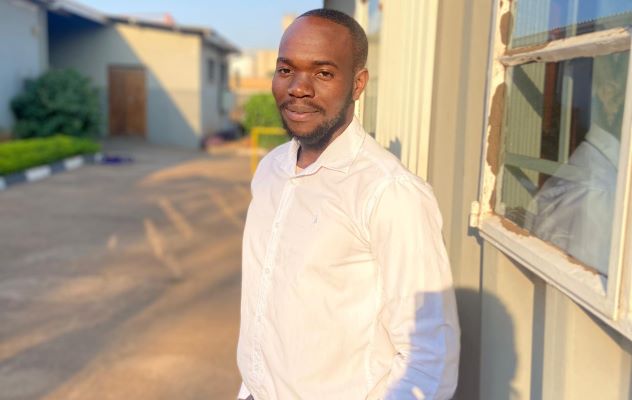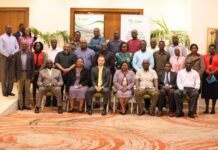Malawi’s farmers fear El Nino because it always brings drought, withering heat, and therefore poor crop performance. Poor crop performance means farmers falling closer to the poverty line, the population paying more for their food, and many people going hungry.
Malawian farmers are particularly vulnerable to unpredictable weather patterns and dry spells because over 90% of farming households rely on rain to irrigate their crops. A recent report suggests that this year’s El Nino may result in a 22.5% drop in production of the country’s staple crop, maize. Maize makes up around 2/3 of national calorie intake. Any variance in production is therefore felt keenly not only by the farmers who devote on average 70% of their arable land to grow it, but also the whole country who depend on it for food.
With climate change bringing increasingly inhospitable weather, farmers will only be dealing with more of these struggles as time goes on. If Malawi wants to face what is an existential threat to food security head on, they need to support their smallholder farmers who produce the bulk of food. Market forces increasingly champion large scale commercial farms over smallholder farms, but around 80% of Malawi’s population is employed in subsistence agriculture.
Given the increasing number of challenges they are facing, there is a risk that the smallholder farmers currently producing the majority of the country’s food will be left behind, with potentially disastrous results.
Malawi is one of the African countries which will suffer most from climate change. It is a country already ravaged by drought, heavy rain, and soil erosion to the point where 80% of people can only eat twice a day. However, this is not the only reason for the current productivity slump. Vast amounts of human and agricultural potential are being wasted due to a lack of education and a lack of investment in Malawian smallholder farmers and their farms.
McKinsey estimates that Sub-Saharan Africa will need eight times more fertilizer, six times more seed, $8 billion investment in storage, and $65 billion investment in irrigation to fulfil its agricultural promise and fortify food security. This lack of investment is pushing the gap between small farmers’ yields and technical potential yields – the ones achieved under the best conditions – wider and wider, simply because they don’t have access to the most efficient productive technologies.
Small farms are often found to be more productive per unit of land, meaning the commercial farms scooping up all the investment are not the best answer to Malawi’s food security troubles. And yet, smallholder farmers face an uphill battle to access credit to buy the equipment they need to be more productive and profitable, from irrigation to tractors. This is because banks are often reluctant to lend to them due to a lack of collateral to secure the loan, and even more important a lack of information about their finances.
There needs to be a concerted effort throughout Malawi’s institutions to offer support to farmers throughout the agricultural lifecycle, from planting to harvesting. They need access to financial assistance and insurance against disasters like El Nino, just like the large commercial farms rely on.
How can banks be persuaded to offer this? They need a way to assess their historical and current financial health so that they feel able to lend money without a large risk of default. Although it doesn’t yet happen at scale, it is possible to gather data such as farming practices, historical yields, outstanding debt, and market trends from smallholder farmers so that lenders can make informed financial decisions.
If this system can be instituted, the result will be positive returns on investment for financial institutions, farmers who can invest to boost productivity and profitability, and a more prosperous Malawi.
However, human capital is just as important as financial capital. A farm’s success is built upon a farmer’s knowledge and skills, so education is paramount. As more financial resources begin to materialise, farmers will need education to know how to access them. Therefore, financial literacy needs to be more widely taught to farmers.
This would also mean the development of Malawi’s agricultural sector could accelerate as farmers begin to produce food in alignment with the most profitable and readily available markets. Diversifying crops depending on market trends and requirements would significantly increase the value that a farmer can extract from their land. By learning about what resources they have available to them, they can also access lines of credit to make their operations more profitable, and obtain nsurance that safeguards them from natural disasters like drought from El Nino.
With agriculture becoming more data and science-led, rural education around the latest agronomic practices also pays dividends for the region at large. Farming is all about making decisions about how to manage risks and maximise profit. Farmers are always thinking about what to plant, when to harvest, how much to keep for consumption, and how much to sell, along with a thousand other questions that may make or break their year.
These decisions will become even more important as the climate changes. There needs to be more training available for farmers to help them utilise data-driven insights about their farming practices and leverage the latest technology to become more productive and profitable, making the best decisions for their family and the food security of the whole country.
Working with my team at Tipindule Fintech, I have dedicated my life to this work, connecting smallholder farmers with banks, proving their investment worthiness to those banks, and providing education to those who need it. As agricultural research and investment resources become increasingly monopolised by the largest commercial farms, we as a country need to bridge the financial exclusion gap to ensure farmers have the inputs they need to thrive, whatever the future holds.









